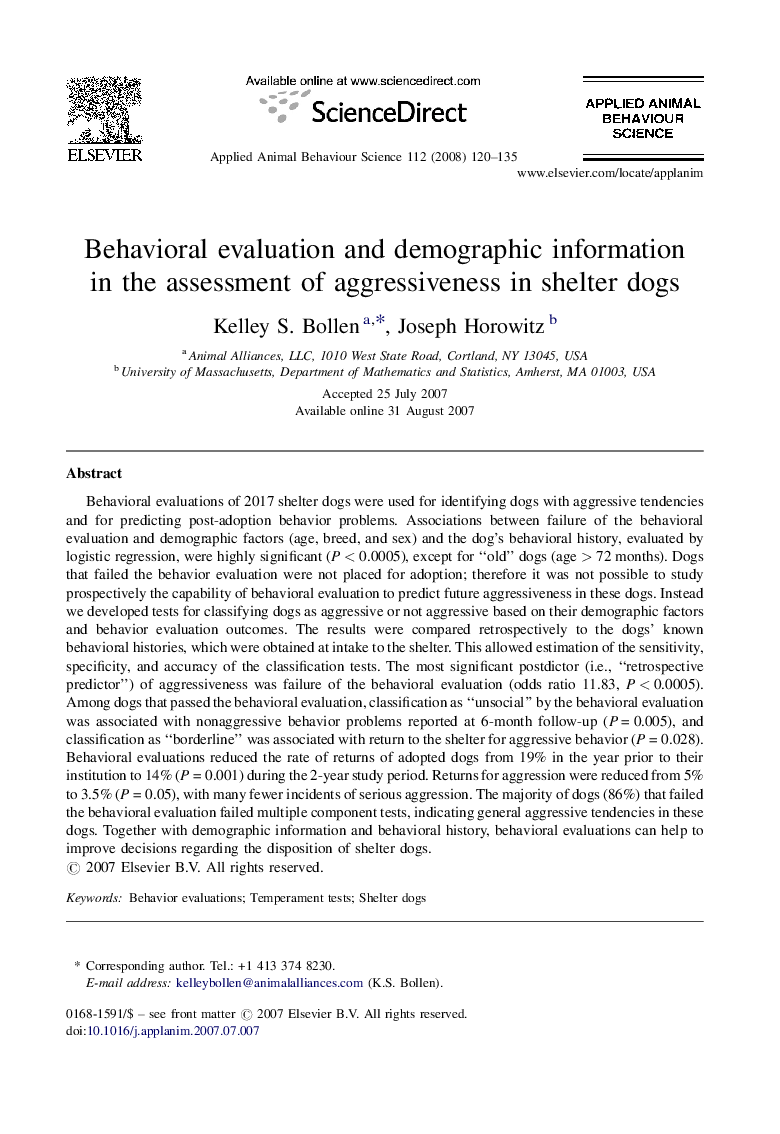| کد مقاله | کد نشریه | سال انتشار | مقاله انگلیسی | نسخه تمام متن |
|---|---|---|---|---|
| 4523690 | 1625421 | 2008 | 16 صفحه PDF | دانلود رایگان |

Behavioral evaluations of 2017 shelter dogs were used for identifying dogs with aggressive tendencies and for predicting post-adoption behavior problems. Associations between failure of the behavioral evaluation and demographic factors (age, breed, and sex) and the dog's behavioral history, evaluated by logistic regression, were highly significant (P < 0.0005), except for “old” dogs (age > 72 months). Dogs that failed the behavior evaluation were not placed for adoption; therefore it was not possible to study prospectively the capability of behavioral evaluation to predict future aggressiveness in these dogs. Instead we developed tests for classifying dogs as aggressive or not aggressive based on their demographic factors and behavior evaluation outcomes. The results were compared retrospectively to the dogs’ known behavioral histories, which were obtained at intake to the shelter. This allowed estimation of the sensitivity, specificity, and accuracy of the classification tests. The most significant postdictor (i.e., “retrospective predictor”) of aggressiveness was failure of the behavioral evaluation (odds ratio 11.83, P < 0.0005). Among dogs that passed the behavioral evaluation, classification as “unsocial” by the behavioral evaluation was associated with nonaggressive behavior problems reported at 6-month follow-up (P = 0.005), and classification as “borderline” was associated with return to the shelter for aggressive behavior (P = 0.028). Behavioral evaluations reduced the rate of returns of adopted dogs from 19% in the year prior to their institution to 14% (P = 0.001) during the 2-year study period. Returns for aggression were reduced from 5% to 3.5% (P = 0.05), with many fewer incidents of serious aggression. The majority of dogs (86%) that failed the behavioral evaluation failed multiple component tests, indicating general aggressive tendencies in these dogs. Together with demographic information and behavioral history, behavioral evaluations can help to improve decisions regarding the disposition of shelter dogs.
Journal: Applied Animal Behaviour Science - Volume 112, Issues 1–2, July 2008, Pages 120–135